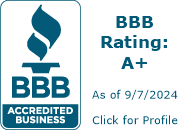Fire Equipment Safety Fundamentals
What you can do to keep equipment working — and not on fire.
Looking for Woodstove Safety Tips?
Click here to see how to stay safe this winter!
During harvest season, fire is always a risk on a farm. It’s especially dangerous if the summer has been hot and dry, like 2021 has been in many places. While something like a lightning strike can start a fire, smaller, less obvious causes are also easy to find on a farm. That’s why keeping equipment like tractors and combines clean is essential.
In this post, we’ll focus on combines, since they spend so much time in locations where flammable material gathers. But other large farm equipment needs attention and a quality cleaning too.
Keep it clean
Start by keeping the combine clear of chaff and dust with a brush or (more realistically) a leaf blower or compressed air. The engine, where it heats up and has a lot of moving parts, is probably the most likely part of the combine to catch fire. Look for parts of the engine that are exposed to the outside, like exhaust, so they don’t accidentally draw in flammable plant material.
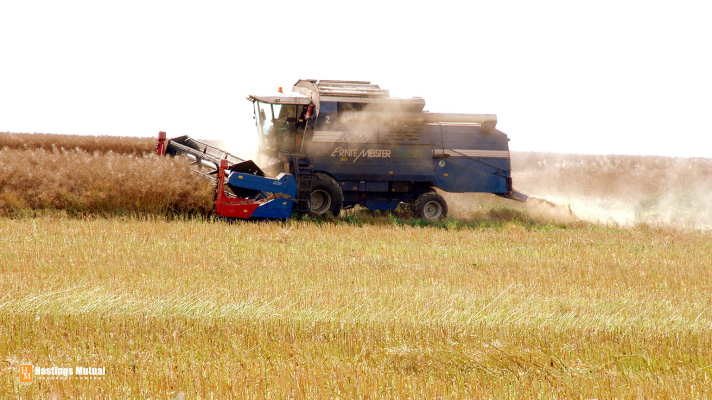
Check the oil
Just like you do in a car or truck, check the coolant and oil levels regularly. If there’s a leak, crack, or weakness in a fuel line or a connection, replace it as soon as possible. Also clear off the areas around those fuel lines and connections, wiping them down with a clean cloth.
Two fire extinguishers and intense heat
A fire extinguisher is a first line of defense against flames in your combine. We recommend having two extinguishers so it’s quicker for you to get to a fire-fighting tool:
- A 20 lb. ABC extinguisher at the ground level
- A 10 lb. ABC extinguisher in the cab
“ABC” refers to the three types of fires you can put out with the extinguisher — the types of fire that are most likely in a combine. This kind of fire extinguisher isn’t difficult to find, but confirm each day that they are fully charged before heading out to work.
At the end of the day, or when you’re done working with equipment for a while, let it cool down entirely before you walk away. A still-warm machine part that comes in contact with something flammable can explode into flames at any time. If you’re going to cover the combine or store it away next to other things, that may be enough to start a fire if it’s not completely cool.
Find a safe place
Have a plan in place if there is a fire, even with all your precautions on and around your combine. Once you’re safely away from the flames and have contacted fire professionals, do what you can to battle the fire. Use your fire extinguishers if you can without putting yourself at risk.
Tell firefighters where to go
Finally, find the 911 address for each field, grain bin, or other location. The emergency dispatcher may see your address on a caller ID system, but if the fire isn’t at the house, precious time might be lost redirecting a fire engine. Instead, talk with your fire department about the best way to mark your property, then use bold, clear signs to indicate the location of your fields.
What other farm equipment safety rules do you follow? Let me know in the comments.
The Mutual Understanding blog and Hastings Mutual videos are made available for educational purposes only. The information referred to is not an official company statement, corporate policy, or offer of coverage. Refer to your insurance policy for specific coverage. There is no representation as to the accuracy or completeness of any information found by following any link on this site. Please contact your local independent insurance agent with further questions and for more details on any insurance policy-related information you read here.
© 2021 Hastings Mutual Insurance Company. All rights reserved.
Related Blog Posts
-
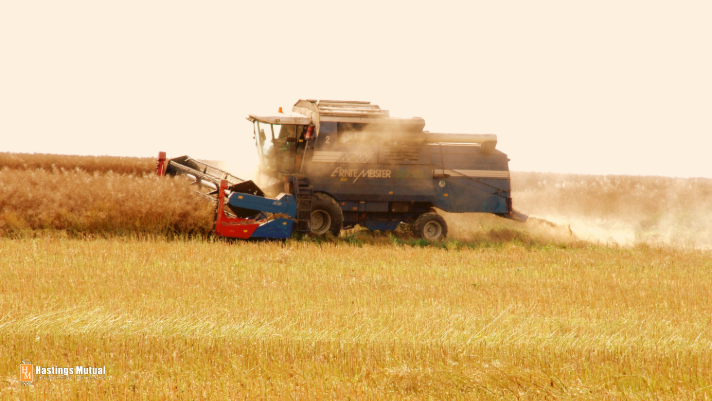 Simple Ways To Keep Farms Clean And Safe
Simple Ways To Keep Farms Clean And Safe
If you own or operate a small farm, this coverage may be right for your business.
-
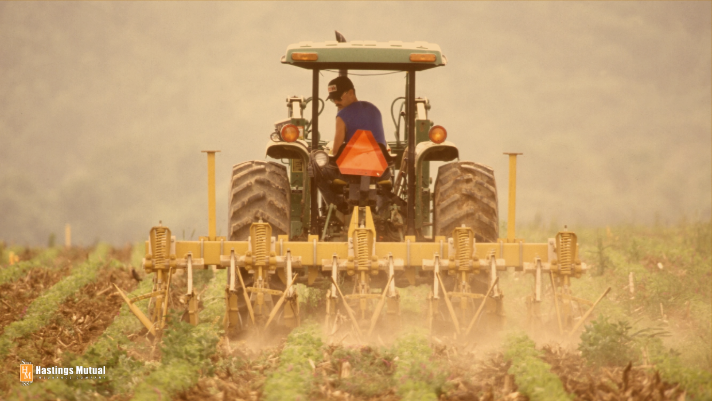 Managing Farmer Stress
Managing Farmer Stress
A new program will help farmers deal with the dangers of stress.
-
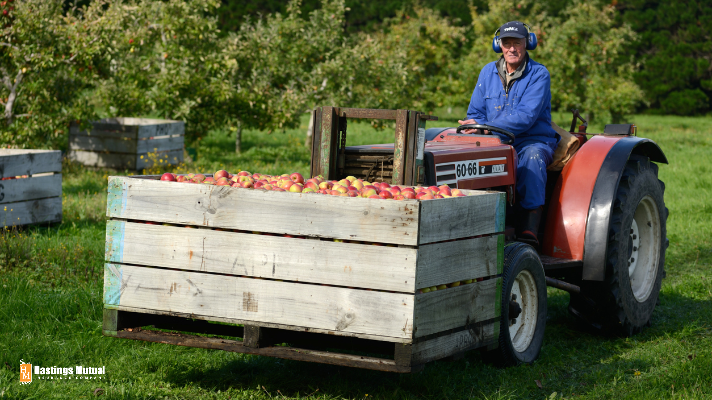 Simple Ways For Your Farm Workers To Succeed
Simple Ways For Your Farm Workers To Succeed
Stretching, lifting, using tools… what you need to know to keep your workers healthy.
Hastings Insurance Company
404 E. Woodlawn Ave.
Hastings, MI 49058
Monday-Friday
8:00 a.m. - 4:30 p.m. (EST)
(800) 442-8277
Terms of Use and Privacy Statement© Hastings Insurance Company. All rights reserved.



